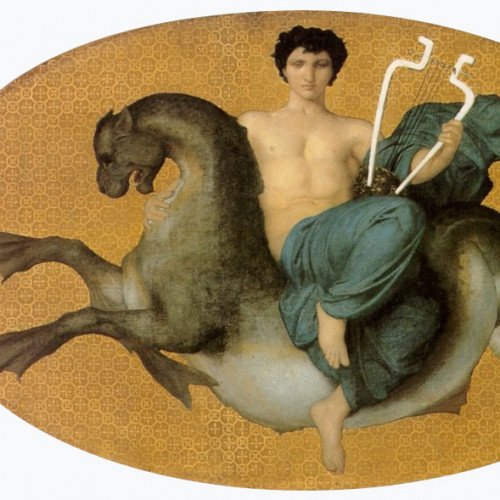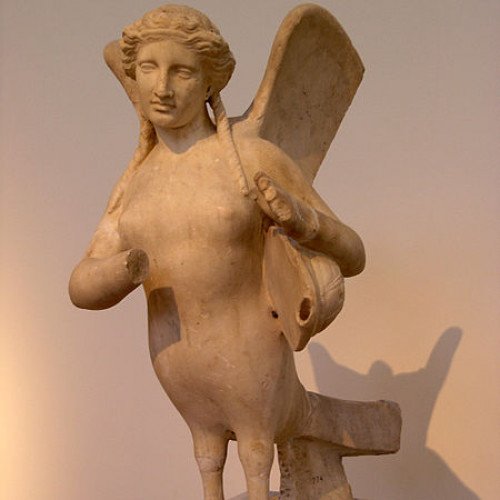Arion (mythology) VS Siren (mythology)

Arion (mythology)
In Greek mythology, Arion or Areion (Ancient Greek: 'Ἀρίων, Ἀρείων, is a divinely-bred, fabulously fast, black-maned horse. He saved the life of Adrastus, king of Argos, during the war of the Seven against Thebes.Arion was (by most accounts) the offspring of Poseidon and Demeter. When the goddess Demeter was searching for her daughter Persephone, she was pursued by Poseidon. To escape Poseidon, Demeter turned herself into a mare and hid among the mares of Oncius, king of Thelpusa in Arcadia. But Poseidon turned himself into a stallion and mated with Demeter, producing Arion. Other accounts had Arion as the Offspring of Gaia (Earth), or of Zephyrus and a Harpy.Arion was given to the hero Heracles who rode Arion into battle during his expedition to Elis, and also during his combat with Ares' son Cycnus. Later Heracles gave Arion to Adrastus, the king of Argos. Adastus took Arion with him on the disastrous expedition of the Seven against Thebes. On the way to Thebes, Arion competed and finished first in the first Nemean Games. At Thebes, when the battle was lost, Arion quickly spirited his master Adrastus away from the battlefield, saving his life, when all the other leaders of the expedition were killed.
Statistics for this Xoptio

Siren (mythology)
In Greek mythology, the Sirens (Greek singular: Σειρήν, Seirḗn; Greek plural: Σειρῆνες, Seirênes) were dangerous creatures, who lured nearby sailors with their enchanting music and singing voices to shipwreck on the rocky coast of their island. Roman poets placed them on some small islands called Sirenum scopuli. In some later, rationalized traditions, the literal geography of the "flowery" island of Anthemoessa, or Anthemusa, is fixed: sometimes on Cape Pelorum and at others in the islands known as the Sirenuse, near Paestum, or in Capreae. All such locations were surrounded by cliffs and rocks. According to the Greek Neoplatonist philosopher Proclus, Plato said there were three kinds of Sirens: the celestial, the generative, and the purificatory / cathartic. The first were under the government of Zeus, the second under that of Poseidon, and the third of Hades. When the soul is in heaven the Sirens seek, by harmonic motion, to unite it to the divine life of the celestial host; and when in Hades, to conform the soul to eternal infernal regimen; but when on earth their only job to "produce generation, of which the sea is emblematic".